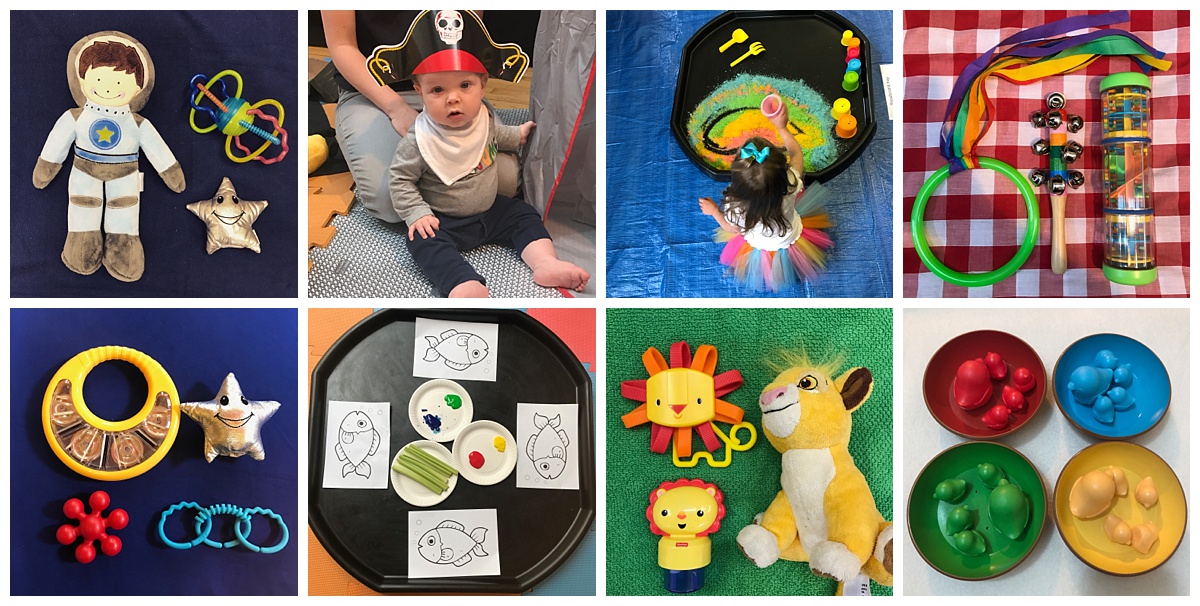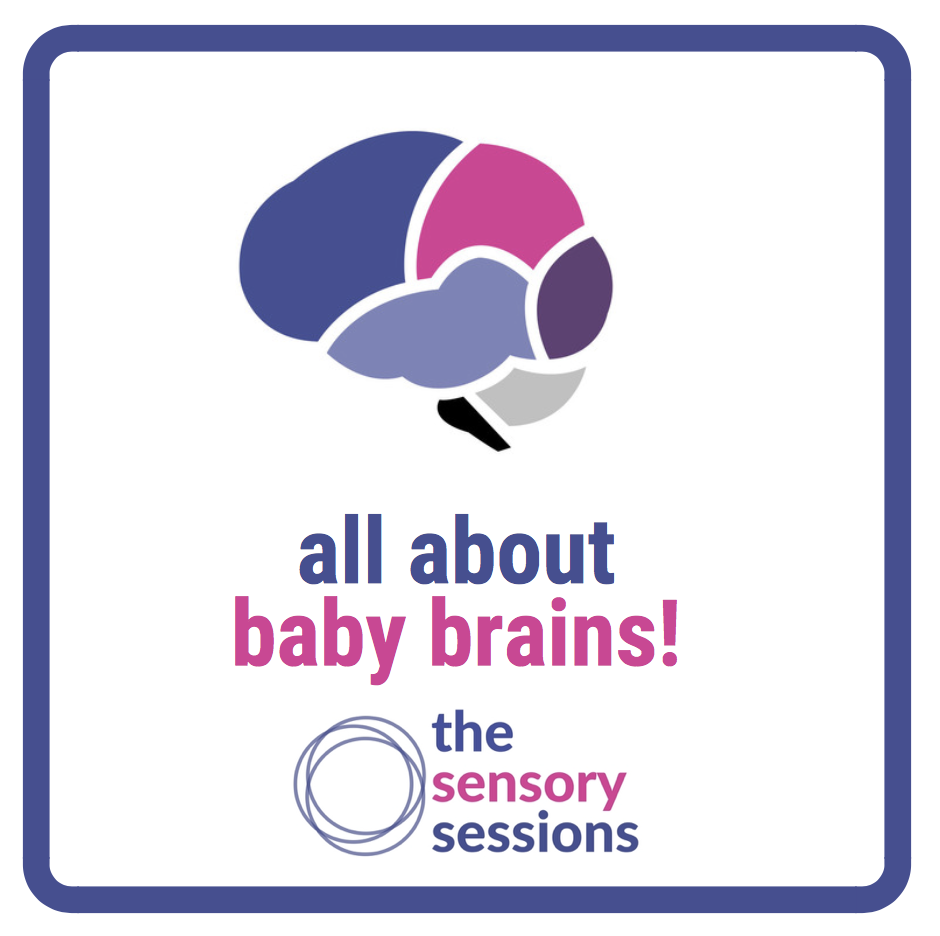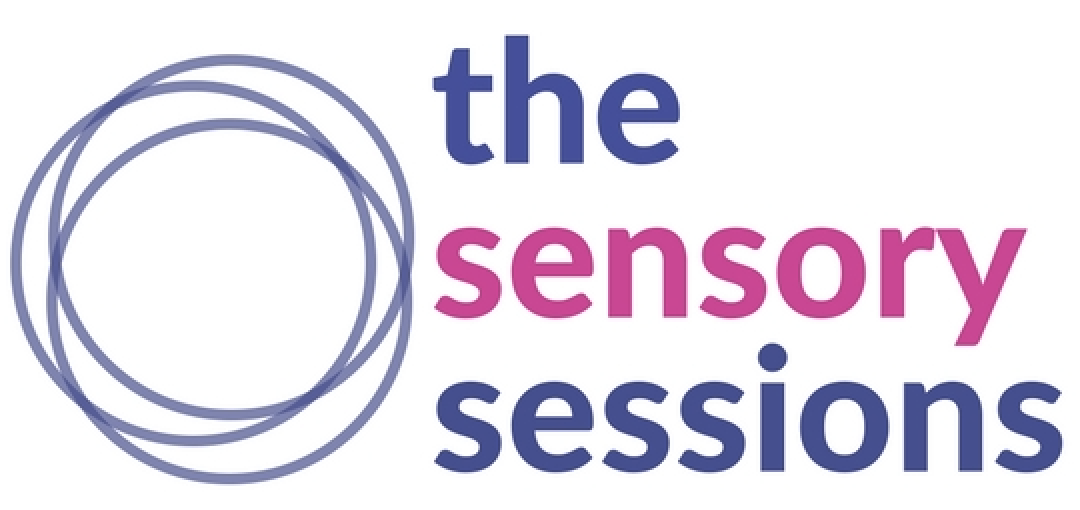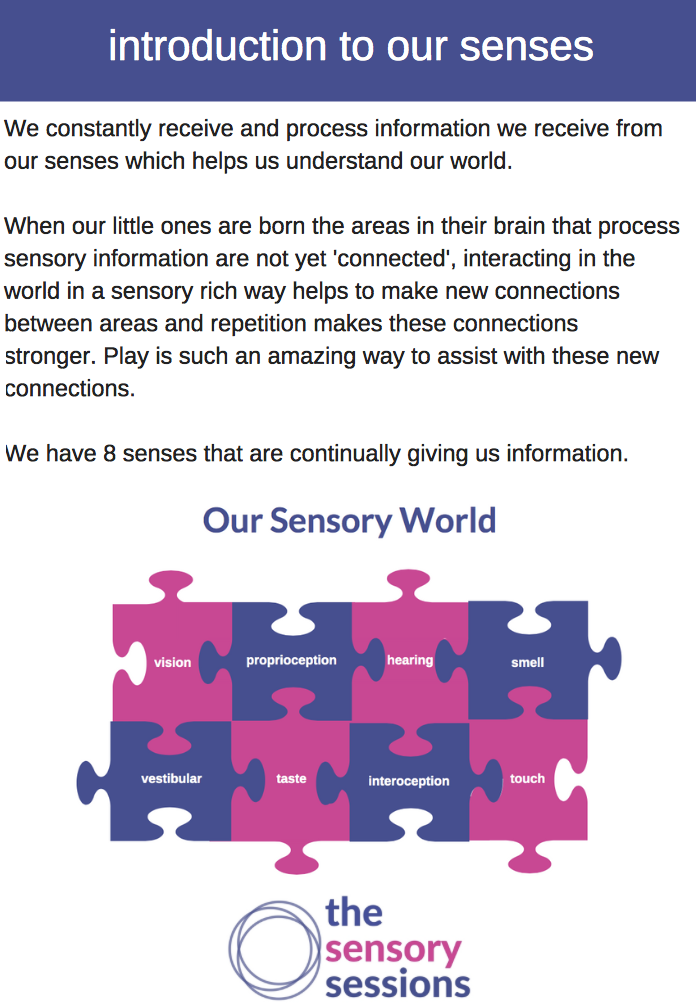your baby’s senses

We all have eight senses that are continually giving us information on the world around us and how we are moving in it. They are our five senses (taste, touch, hearing, smell and vision) and our three body senses (proprioception, vestibular and interception).
When our little ones are born the areas in their brain that process sensory information are not fully ‘connected’ so playing in a sensory rich way not only helps them make sense of the world, it is developing little brains and creating opportunities for lots of new brain connections.

Each sense explained
Vision
information from our eyes is received by the brain and is processed to give us a visual picture. Least developed sense at birth and we need to learn visual skills including motor control of our eyes, visual discrimination & hand to eye co-ordination
Hearing
fully developed at birth but we can help with discrimination of different noises and identifying direction of sound.
Smell
our smell receptors in our nose send information to our brain through the area in our brain responsible for emotional memories before sending it for processing. This is why a smell can trigger a strong memory.
Taste
our mouths send information to our brains regarding what we’re eating or drinking. This information includes temperature, texture and taste.
Touch
information received from the skin on temperature, pain, touch & pressure. As babies are touched their brains begin to form an internal map of their body. This awareness is essential for motor and perceptual skills later on.
Vestibular
is our balance system situated in our inner ear which works alongside our other systems to ensure we move smoothly and efficiently
Proprioception
our body position sense, information from our muscles and joints tell our brain where our body is in space. Really important for movement and our co-ordination
Interoception
our internal organs giving us information on our needs e.g. hunger, thirst, toileting, digestion
Baseline senses
Touch, vestibular and proprioception are known as our foundation senses that give us our basis for learning. For that reason we ensure that there is lots of activities that focus these senses. During classes there are lots of textures to feel and discover, there are lots of positions to play in and we encourage parents to move around the different areas during our exploratory play time in our class and we assist proprioception and that body mapping process through our activities like rub, rub, rub.
How do sensory development classes help?
When we plan our classes, our occupational therapist ensures that there are opportunities for each of our little ones’ senses to be developed and throughout our class we give you strategies and ideas of activities that you can do at home too.
During our classes we ensure that we have a balance of activities to stimulate senses, repetition to make those brain connections stronger and that we pace and are baby led in our approach. Sensory play is evidenced to support language development, cognitive growth, fine and gross motor skills, problem solving skills, and social interaction
Sensory play enhances learning through hands-on activities that stimulate the child’s senses. This is a great way for children to explore the world they live in!
We have made a printable with all of the information above which you are really welcome to download and we hope that you find helpful.




